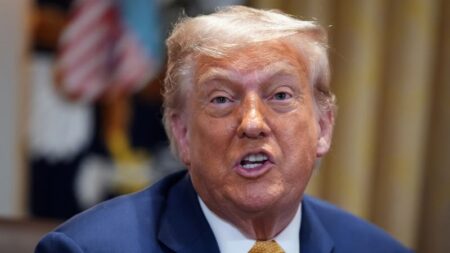In recent months, the fate of TikTok—the globally popular short-form video app—has been under intense scrutiny, particularly as it pertains to its ownership and operation within the United States. There are now indications that if TikTok does change hands, American users may need to download a completely new app, potentially altering the user experience significantly. Such a transition raises concerns about how the platform would function and what it would mean for the millions of TikTok enthusiasts in the U.S.
The supplier of TikTok, ByteDance, based in China, has faced mounting pressure from the U.S. government to offload the app amid ongoing concerns regarding national security. Former President Donald Trump had delayed the enforcement of a law compelling ByteDance to divest or risk a ban, but recently he announced that a buyer for TikTok might be identified soon. According to reports, TikTok is reportedly in the process of developing a distinct version of the app tailored specifically for American users, which is set to launch on or around September 5, as reported by The Information.
The potential for a new app isn’t entirely unexpected, given that TikTok’s success is heavily tied to its unique algorithm, which curates tailored content on the “For You” page. However, the Chinese government has declared that it would prohibit the transfer of this algorithm to a new owner. Consequently, any new version of TikTok for U.S. users would likely necessitate the creation of an entirely new algorithm from the ground up, fundamentally changing the way users interact with the platform. This situation has attracted speculation regarding possible user experiences, as the current user interface may not be replicated in a new app.
Although TikTok has not officially commented on these developments, many experts suggest that a deal, if it occurs, could have significant implications for TikTok’s 170 million American users. An updated app experience may lead to a marked shift in what content is seen and how users engage with each other, fundamentally changing the TikTok community. As outlined by The Information, there could be serious logistical challenges in transitioning current users’ profiles and content to a new app environment, complicating the user experience.
The implications go beyond mere aesthetics; the fear is that this disruption might alienate users and potentially push them towards alternative platforms. Given that the app has faced challenges in retaining users amid these shifts, the ripple effect of a new app could lead to diminished engagement levels overall.
The backdrop to this evolving situation involves legislative actions initiated by the U.S. government, particularly under President Biden, who enforced a sale-or-ban law for TikTok due to national security worries. While the law weaved through judicial channels and was upheld, the extensions given to TikTok to find an acceptable buyer have been numerous, with Trump indicating that there is now a group of affluent buyers prepared to take charge of TikTok’s operations in the U.S. However, questions regarding the Chinese government’s approval for a sale still loom unanswered.
As legal cadences intertwine with TikTok’s potential futures, experts highlight the tension between U.S. laws and the desires of its Chinese parent company. Central to discussions about any sale are stipulations that any U.S. TikTok must operate independently, avoiding collaboration with ByteDance in managing its algorithms or user data. This not only affects the brand’s operational capacity but also places ByteDance in a compromising position, where it might retain a minority stake but lose significant control over the app’s functionality.
Critics of the administration’s tactic of repeatedly delaying the enforcement of the divestiture were swift to address concerns regarding legal compliance. Observers suggest that the prolonged delays could instate inconsistencies that render the U.S.’s approach to dealing with TikTok possibly unsustainable in the future, particularly as shifting political winds might soon create a different atmosphere entirely for social media regulations.
In summary, major adjustments lie ahead for TikTok and its vast user base in the U.S. As the potential new app seems on the horizon, users can anticipate changes that could redefine how they navigate this beloved platform. The transition of ownership alongside algorithmic restructuring poses numerous questions about continuity, user satisfaction, and the evolving terms of engagement for the TikTok community in America.










